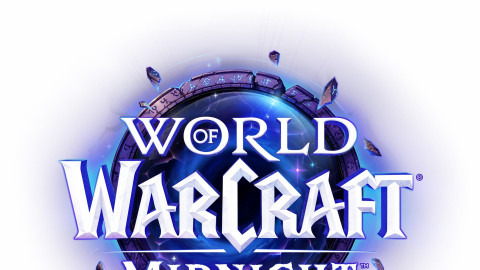
The Assassin’s Creed franchise needed to change. After the completely botched launch of Assassin’s Creed Unity in 2014, disappointed fans were told the game would undergo major technical work in order to make it more like the vision presented earlier that year at E3. The only problem is that even with the faceless characters and slideshow framerates removed, the game was incredibly boring to play. 2015’s Assassin’s Creed Syndicate fared much better, but its low sales numbers seemed to reflect that players wanted something new from Ubisoft’s flagship franchise.
With a whole extra year of development time (2016 was the first year since 2008 to not get a new main Assassin’s Creed game) Assassin’s Creed Origins doesn’t suffer from the technical issues that plagued Unity or Assassin’s Creed III. It’s also a major gameplay departure, functioning as an action-role-playing game with a focus on hitboxes and experience points that weren’t emphasized in past titles. For the most part, these changes do a fine job of changing up the formula, but in emulating other contemporary titles, the game loses some of what made Assassin’s Creed special.
One area where Assassin’s Creed Origins sticks closely to the series’ tried-and-true approach is its story, split between modern-day science-fiction segments and the majority of the game, which takes place in Egypt during the time of Cleopatra. Protagonist Bayek is a protector known as a Medjay, who is struggling to fight the oppression of a mysterious organization known as the “Order of the Ancients.” With very little exposition to set the story up, we’re provided with little reason to truly hate the group from the get-go, though a personal tragedy for Bayek early on gives us just enough motivation to make it through the game’s set of revenge quests. He’s joined in his journey by his wife Aya, whose aptitude for assassination often overshadows Bayek’s own. It’s a refreshing take on the female assassin archetype Ubisoft has attempted to use in the past, and the pair’s frank sexuality and passion in something I didn’t expect to see.

That isn’t to say, however, that the story is particularly enthralling otherwise. Thus far, the main missions have fallen into a very familiar pattern, with Bayek completing a few different tasks before he can reach and assassinate the next member of the Order of the Ancients. It’s a problem that can plague many open-world games, as their structure doesn’t lend itself well to continuous and substantial storytelling for hours on end, but it’s mitigated by side quests that help to flesh out the world and introduce supporting characters. One particularly entertaining quest had us engage in fisticuffs with a drunk and jealous friend, while another had us rescue a hungover man from his failing marriage of one day – alcohol tends to get these folks in quite a bit of trouble, it seems.
In nearly all of these missions, you’re going to be killing something, whether it’s a human or an animal, and it’s here where we see the most notable changes to the Assassin’s Creed gameplay loop. Instead of relying on enemies’ own movement and counter-attacks to rack up your kills, the game makes use of an action-role-playing control scheme similar to what we’ve seen in From Software’s projects as well as Nioh and The Surge. Bayek has access to light and heavy attacks as well as a dodge and eventually a parry move, and he must make use of all of his abilities in order to take down even the lowliest targets.

It adds a nice layer of strategy to one-on-one encounters, as a few well-timed dodges and strikes can be the key to victory, but when Bayek finds himself surrounded, the combat system shows its seams. Switching between enemies can occasionally shift the camera so much that you lose track of your earlier target, and Bayek can routinely get “stun-locked” while trying to manage a group. He doesn’t quite feel like the badass assassins we’ve gotten to play in the past like Ezio or Edward Kenway, but each encounter is definitely more engaging; you can very rarely turn your brain off while in combat. Additionally, special “overpower” moves and Bayek’s wide assortment of weapons allow for strategic changes while in the middle of a battle. They’re both similar ideas to what we saw in Nioh earlier this year, but they work surprisingly well. Once you get the hang of when to activate your ability or swap to a different weapon class, you’ll find yourself dying much less frequently.
Stealth remains relatively untouched in its basic mechanics, with Bayek still using a one-button move to assassinate targets from a piece of cover or from a ledge, but this is no longer an automatic kill. Against more powerful enemies, you’ll only reduce their health by a small fraction with an “assassination,” and must then engage them in either melee or ranged combat. For those who prefer direct combat, this isn’t much of an issue, but players who previously relied primarily on stealth will find certain areas simply must be completed with large battles. It feels against the spirit of Assassin’s Creed to eliminate any options for the player, especially the one that’s literally in the title.

Where Assassin’s Creed Origins truly shines is in its world design. After the homogenous urban settings of Unity and Syndicate, the deserts, rivers, and plains of ancient Egypt couldn’t look nicer. Exploring even the most mundane buildings often reveals beautiful drawings on the interior walls, while the wilderness hides deadly (and not deadly) animals to hunt and enemy troops to ambush. Instead of having to climb towers to reveal new objectives on the map, you now do so just by playing the game as you normally would, and you’ll no longer find yourself pausing to constantly look at the map. Oftentimes, the things you just happen to stumble across will become your new focus, and when you do have to make the miles-long trek to reach a specific objective, Bayek’s mounts make it a quick and easy affair. Ubisoft is planning to release a combat-free, history-focused version of the game for current players in 2018, and children playing their first Assassin’s Creed game will still be able to experience the best aspect of Origins.
Assassin’s Creed Origins leans a bit too heavily on its role-playing influence than it needed to – the changes in combat still need to provide an effective way to take on multiple enemies and assassinate powerful targets. But like last year’s Watch Dogs 2, it shows that the company is doing its best to move away from the formulaic approach that has dominated so many of its franchises over the last generation. It isn’t a rousing success, but with the reintroduction of a few key elements from past games, Assassin’s Creed could easily find itself back on top.

Disclaimer : This piece was written using a code provided by the publisher.
Sort by:
Comments :0






